- Home
- > The Marketix Blog
- > SEO
A Guide to Google’s Search Ranking Systems

Have you ever wondered how Google manages to find exactly what you're looking for in the blink of an eye? It's not magic but a clever set of automated ranking systems at work.
These systems examine countless web pages and content to provide you with the most relevant and useful results. If you create content or own a website, understanding these systems is important to making sure your content reaches the right audience.
In this guide, we'll make it easy to understand Google's ranking systems. Let's get to know the secrets behind Google’s search results and the key systems that power the world's most popular search engine.
Core Ranking Systems
Google's search functionality is driven by its core ranking systems, which are responsible for the results you see. We will explore these systems to understand how they operate.
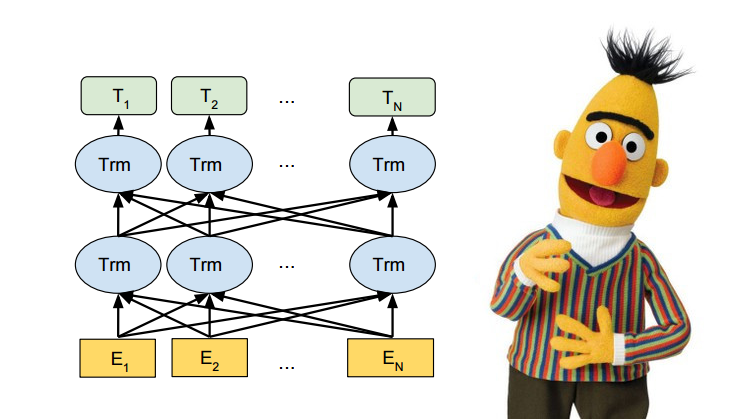
BERT (Bidirectional Encoder Representations from Transformers)
BERT goes beyond the basics. It understands the bigger picture by looking at how words work together. Instead of only caring about specific words, BERT looks at how words fit into sentences. This helps it figure out the context and what you truly want to find.
BERT interprets the fine points of language in search queries by analysing the context in which words appear. It doesn't just focus on the keywords but understands the relationship between them to understand the searcher's intent more accurately.
For a business selling eco-friendly packaging, when a BERT-influenced search is used, it can better understand a query like "environmentally friendly box alternatives." This means it can provide results related to packaging options made from biodegradable, compostable, or recycled materials, taking into account the broader concept of sustainability in packaging.
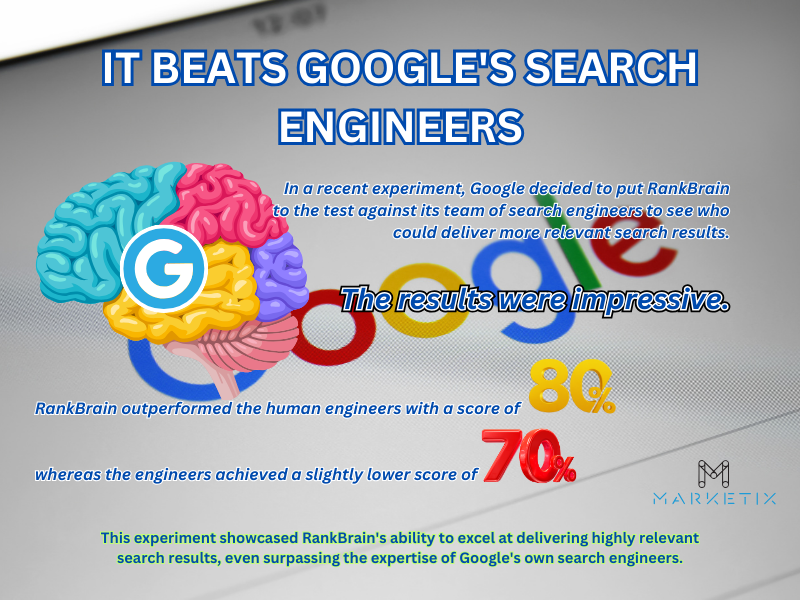
RankBrain
RankBrain is a smart AI system that helps us link words to ideas. It makes sure that we can find the right content, even if your search doesn't match the exact words. It does this by understanding how content connects to other words and concepts. This way, we always deliver the most relevant results.
RankBrain uses machine learning to connect words with concepts and intentions, making sure that even when users use unclear or inaccurate language in their searches, the results remain relevant by understanding the key concepts.
For instance, if a business is investigating customer trends and conducts a RankBrain-influenced search using the query "customer preferences sustainable packaging," the results may extend beyond the exact wording to include research on consumer behaviour concerning eco-friendly packaging choices, thus broadening the search to include related concepts.
This enhanced search capability offers a more comprehensive perspective on customer preferences in sustainable packaging.
Neural Matching
Neural Matching is a system Google uses to understand your search and find the best web pages for you. It works by figuring out what you mean with your search and then finding web pages that have the information you need, even if they don't use the exact words you typed.
This is really useful for businesses searching for specific things. For example, if a food business looks up "sustainable packaging options for food products," Neural Matching will help them find web pages about eco-friendly packaging, even if those pages don't use the exact phrase they searched for.
The main purpose of Neural Matching is to make sure you find the most relevant and helpful information for what you're looking for, especially if you're trying to improve your business's online visibility.
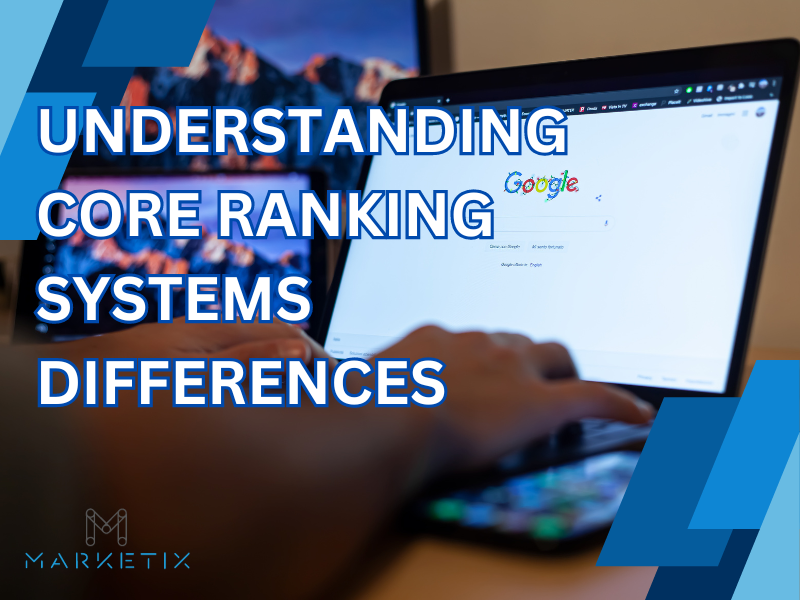
Understanding Core Ranking Systems Differences
BERT is great at understanding the meaning behind the words in your search. It looks at how words in your query work together to get the real sense of what you're asking for.
RankBrain is like a smart assistant for your searches. It figures out what you really mean, even when you don't use the perfect words. It helps find the most relevant websites by understanding your search's intent and the overall context.
Neural Matching is a bit like a matchmaker for your search queries. It connects what you're looking for with the best matching content on websites. It's smart enough to find the right information, even if the words you use aren't exactly the same as those on the web pages.
All three work together seamlessly. BERT understands the deeper meaning of words, RankBrain gets your search's intent, and Neural Matching connects your query to the right web content. This trio ensures that when you search on Google, you get the most precise and useful results.
Systems for Specific Ranking Needs
Now that we've learned the differences between BERT, RankBrain, and Neural Matching, let's turn our attention to Google's specialised ranking systems tailored to address specific search requirements.
Google isn't a one-size-fits-all search engine. It's a smart tool with specific systems in place to serve various search scenarios. Here are some of the systems designed to meet your specific ranking needs:
Crisis Information Systems
During a crisis, be it personal or widespread like natural disasters, Google's crisis information systems step in. They work like emergency responders, providing timely and helpful information. Here's how they operate:
• Personal Crisis: If someone searches for information related to personal crisis situations, such as suicide, sexual assault, poison ingestion, gender-based violence, or drug addiction, Google makes sure that trusted hotlines and content from reliable organisations are displayed.
• SOS Alerts: When natural disasters strike or widespread crises occur, SOS Alerts come into play. They provide updates from local, national, or international authorities, including emergency numbers, maps, translations, and donation opportunities. It's like your emergency survival kit.
Deduplication Systems
Now, let's shift our focus to everyday search experiences.
Google's deduplication systems make your searches better by removing duplicate web pages. This means you only see unique and useful information. For example, if a business is searching for the latest digital marketing trends, these systems make sure that they don't see the same article multiple times. Instead, they get a variety of unique sources, making it easier to gather different insights and information quickly.
This is great for businesses that need to find specific information without wasting time on duplicate content. It helps make searches clear, quick, and more useful, which is especially important for businesses looking for efficient and effective ways to gather information.
Exact Match Domain System
Google's exact match domain system makes sure search results are fair by not letting websites rank higher just because their names exactly match what people are searching for. This system focuses on the quality and relevance of the website's content to determine its position in search results.
For instance, a business named 'organicskincare.com' won't automatically rank at the top in searches for organic skincare just because of its name. Instead, its position in the search results will depend on how useful and relevant its content is, like articles about the benefits of organic skincare. This encourages all websites, including businesses, to provide valuable and informative content, creating a fair environment where the best and most relevant content is given priority.
Freshness Systems
Google's freshness systems make sure that when you search for something that needs the latest information, like recent trends or news, you get the most current and relevant results. These systems are great at finding and showing you the newest content first.
For instance, if a business is searching for the latest digital marketing trends, Google will provide search results with the most recent articles and updates in this field. This is especially important for businesses in fast-changing industries like digital marketing, where staying up-to-date is crucial. Google's systems help ensure that businesses get timely and relevant information to make well-informed decisions.
Helpful Content System
Google's Helpful Content System is designed to show you content that's truly useful and valuable, focusing on quality rather than just articles made to attract search engine traffic. This system looks for content that provides real, practical insights and advice made by actual people to help you out.
For instance, if a business is looking for ways to improve customer engagement, this system would help them find well-written articles or guides full of useful strategies and tips. It's like getting expert advice, making sure that the content is not only original but also up-to-date with the latest trends and business challenges. This way, businesses can rely on getting relevant and practical information to help them succeed.

Link Analysis Systems and PageRank
PageRank is a key algorithm used by Google to determine the importance of web pages. It works by evaluating the links that come into a page; each of these links is like a vote of confidence. The more votes from credible sources a page receives, the higher its ranking will be. This ranking, however, doesn't grow in a straight line – it goes up exponentially. This means a slight increase in PageRank could lead to a significant rise in a page's perceived importance.
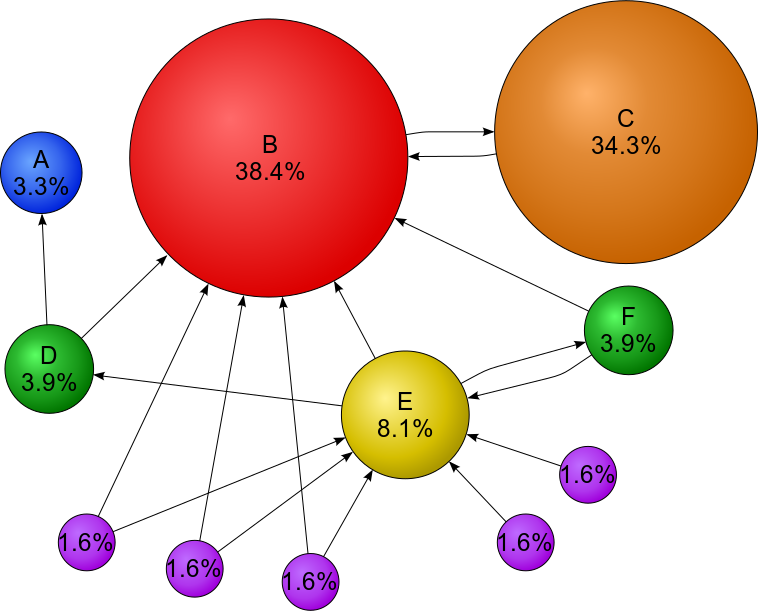
For example, consider "Green Garden," a business selling organic produce and eco-friendly garden supplies. Their website is linked by well-known gardening blogs, eco-friendly sites, and directories. These links are like professional nods of approval, boosting Green Garden's visibility online.
PageRank calculates this using a formula. Simplified, it looks at the number and quality of links to a site. For GreenGarden, links from reputable gardening sites count more than several from lesser-known sources. This is because the PageRank formula values links from authoritative websites highly.
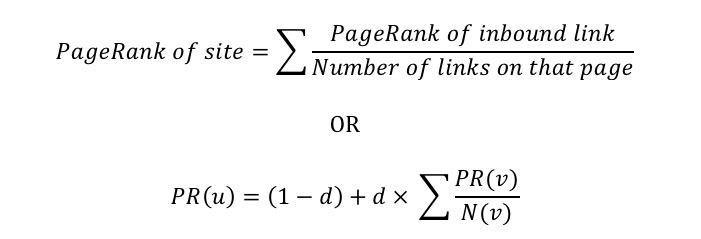
In this formula, there's a factor, usually around 0.85, which ensures that these 'votes' of confidence are realistically weighed. It's like giving more credit to recommendations from industry leaders while still acknowledging smaller endorsements.
For GreenGarden, a higher PageRank means appearing higher in search results when people look for organic produce or gardening supplies. This digital ranking mirrors GreenGarden's reputation and connections in the organic and eco-friendly market, supported by the quality of its online network.
To put it simply, PageRank looks at the quantity, quality and relevance of links going from one page to another page.
Local News Systems
Google's local news systems provide you with news and updates from your own area, just like an online hub for community news. They feature sections like "Top Stories" and "Local News," specifically focusing on what's happening around you.
For instance, if you're a business owner, these systems can help you stay informed about things like local market trends, community events, or important changes in your area that might affect your business.
This way, you're not just connected to your community, but you're also kept in the loop with news and stories that are relevant and interesting to you. It's a way to make sure you're always aware of what's happening locally, which can be really important for both personal and business purposes.
MUM (Multitask Unified Model)
The Multitask Unified Model (MUM) is a special feature from Google that's really good at handling complex search queries. While it's not for everyday searches, it shines when dealing with detailed and specific topics. For example, MUM helps provide more accurate search results and better answers for complicated topics like COVID-19 vaccines.
MUM's main goal is to give you complete and helpful information. It's skilled at looking into a wide range of subjects and combining different pieces of information to answer your complex questions.
For businesses, MUM can be extremely useful for in-depth research, such as understanding new market trends or navigating industry regulations. It brings together various types of data to offer thorough and precise answers, helping businesses find exactly the information they need for making well-informed decisions.
Original Content Systems
Google really values unique and original content, and it has systems in place to make sure that this kind of content stands out in search results. These systems look for and highlight original reports and expert insights. For example, if a technology company publishes a detailed market report, Google's systems help ensure that this report gets noticed and shows up in relevant search results.
Additionally, Google uses a special badge to mark the original source of content that's found in multiple places. This way, the creators of the content get proper credit. Essentially, these systems act like a filter for quality, focusing on content that is not only unique but also informative and truly valuable.
This is especially important for businesses. If they create their own original research or detailed analysis, these systems can help their work get more visibility and recognition in Google's search results.
Removal-Based Demotion Systems
Google sets rules to keep the internet safe and responsible, focusing on issues like preventing copyright violations and defamation. If a website often has to remove such content, Google's systems that monitor removals take action.
These systems lower the visibility of websites that don't follow these rules. This helps make sure that the websites you see in search results are trustworthy and reliable. The main aim is to keep the quality of content high on the internet. These systems work to ensure that you find the best and most accurate information when you search, making your internet experience safer and more reliable.
For businesses, it's important to follow these rules to stay visible on Google. A business that keeps its website content within legal and ethical boundaries is more likely to be seen as trustworthy, helping it rank better in search results and maintain a good online reputation.
Passage Ranking System
Google's passage ranking system is a tool that helps you find specific information on a web page easily. It's great when you need to find an exact piece of information without having to read the whole page.
Let's say a business in the tech industry is looking for the latest artificial intelligence (AI) trends for their new product development. They might search for something specific like "What are the key AI trends for mid-sized tech companies in 2023?" The passage ranking system quickly finds the part of a research report or an article that directly answers their question.
This means they don't have to read through everything, saving time and getting straight to the important points. It's a helpful tool for businesses to quickly find the exact information they need, helping them make well-informed decisions for their projects.
Reliable Information Systems
Google focuses on giving you reliable information. It has systems in place to reduce the visibility of low-quality content and highlight good journalism. When it's hard to find accurate information, Google uses content advisories to help point you towards more trustworthy sources.
For example, imagine you're a restaurant owner looking for ways to ensure a safe dining experience after the pandemic. There's a lot of information out there, and it can be overwhelming. Google's content advisories act as a guide, helping you to go through all the noise and focus on information that is both high-quality and reliable. These advisories are like a helping hand, making sure the information you find is relevant and trustworthy for your restaurant business, helping you make well-informed decisions.
Reviews System
Google's review system helps businesses find the best products or services by offering detailed insights from experts or experienced users. This is particularly useful in areas like choosing customer management software (CRM).
For a business looking for the right CRM system, these reviews are a valuable resource. They provide in-depth information about various CRM options, highlighting their strengths and weaknesses. This helps businesses understand the different CRM systems available and how they might fit their specific needs.
The reviews give a comprehensive view of each CRM option, enabling businesses to make well-informed decisions. It's a way to gain insights that would otherwise require extensive research, saving businesses time and helping them choose the most suitable CRM system for their operations.
Site Diversity System
Google's site diversity system ensures that when you search for something, the results aren't dominated by just one website. It promotes a fair mix of different websites in your search results, so you get to see a variety of perspectives and sources.
For instance, if a business is searching for suppliers in a certain industry, this system helps them find a wide range of companies, not just the biggest ones. This means the search results will show a balanced mix of both large and mid-sized businesses. This diversity helps users find a broader selection of products and services, giving businesses of all sizes a fair chance to be seen and considered by potential customers or partners. It enriches the search results by providing varied options, rather than overwhelming users with multiple results from the same company.
Spam Detection Systems
Google has a system called SpamBrain that targets and removes spammy content and any behaviour that breaks its rules from search results. This system is always getting better to keep up with new ways spammers try to trick it. Its job is to filter out spam, making sure that the search results you see are useful and relevant.
For example, if a business is looking for the latest information in their industry, SpamBrain makes sure that they find accurate and valuable content, not spam. This means their search is more efficient and reliable, helping them avoid wasting time on irrelevant or misleading information. Thanks to these spam detection measures, Google helps maintain a clean and trustworthy search experience.
Google's Retired Systems
Google's ranking systems have come a long way. Some of them, while no longer in use, have left a lasting legacy. Let's take a journey back in time and explore these retired systems, their historical significance, and their impact on the evolution of Google's search algorithms:
Hummingbird

Back in August 2013, Google made a big change with something called Hummingbird. This update was a game-changer for how Google figures out what you're looking for when you search. Instead of just focusing on the specific words you type, Hummingbird helped Google get better at understanding the real meaning behind your search. It was like teaching Google to read between the lines, so it could give you results that matched what you were really thinking about, not just the exact words you used.
Even though Hummingbird has been blended into Google's ongoing updates, its impact is still felt today. The way it taught Google to look at the whole picture of your search, not just the individual words, is still a key part of how Google helps you find what you need.
Panda System

The Google Panda update, introduced in 2011 and known as 'Panda,' focused on promoting high-quality and original content in search results. Its main aim was to lower the ranking of websites with low-quality or sparse content, and instead boost those with rich and valuable content.
Panda judged websites on factors like how much users engaged with them, their trustworthiness, and the depth of their content. This had a big impact: websites with poor content saw their rankings drop, while those with good content saw an improvement.
By 2015, Panda became a key part of Google's main ranking process, continuously ensuring that quality content gets the visibility it deserves in search results.
Penguin System

In 2012, Google introduced the Penguin Update, aimed at solving link spam and improving the overall quality of search results. This update specifically targeted websites that were trying to climb up in search rankings by using artificial backlinks – these are links from other sites that weren't earned through good content or legitimate means.
Sites using such tactics faced penalties, resulting in lower search rankings. To recover from these penalties, website owners needed to clean up their backlink profiles. With its integration into Google's core algorithm in 2016, Penguin started working in real-time, continuously checking the quality of backlinks. This update significantly influenced how websites approach SEO, highlighting the importance of earning high-quality backlinks through genuine, quality content.
Conclusion
Knowing how Google's ranking systems work is really important if you're creating content or managing a website. It helps you make sure that your content gets seen by the right people. If you adjust your content to fit what Google is looking for, your website is more likely to appear in search results.
Since Google often updates these systems, it's important to keep up with these changes. Staying current with Google's adjustments will help you keep your website visible and relevant online. In short, being aware of and adapting to Google's ranking systems is key for anyone who wants to get noticed on the internet. This ongoing effort can significantly boost your chances of standing out online.
Ready to level up your knowledge of Google's search ranking systems? Marketix Digital, as a trusted SEO agency in Sydney, is your partner in becoming an SEO Pro. Get in touch with us today to unlock your maximum potential and leave your competitors behind.
Recent Posts
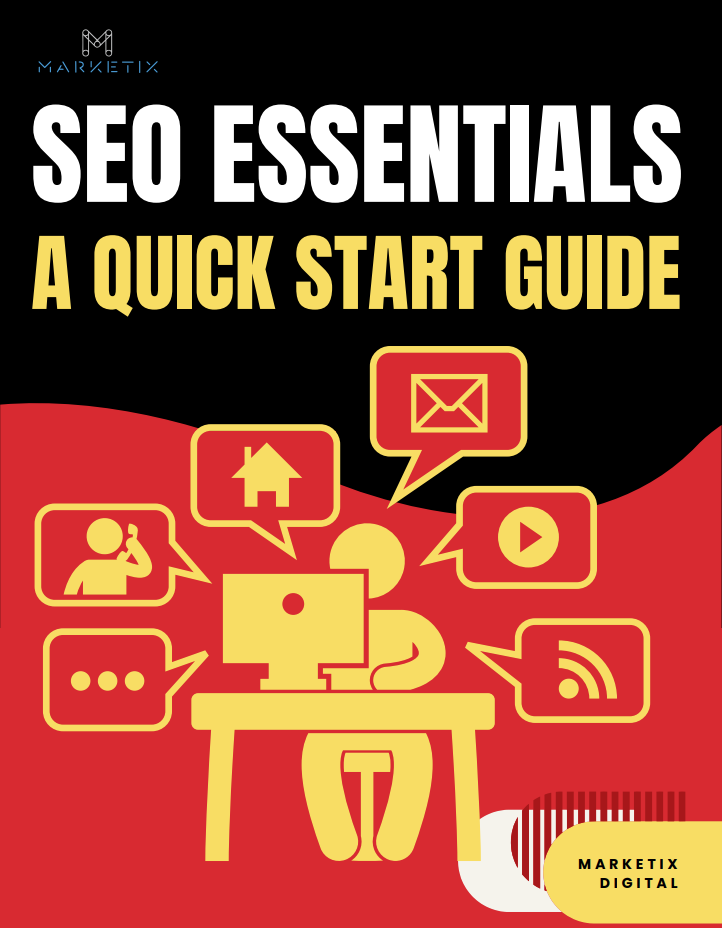
Free Download SEO Book
Download our 24-page SEO book to learn:
- How SEO Really Works
- How to Rank #1
- Content & SEO
- Choosing an SEO Agency
Thank you!
You have successfully joined our subscriber list.
Recent Posts






